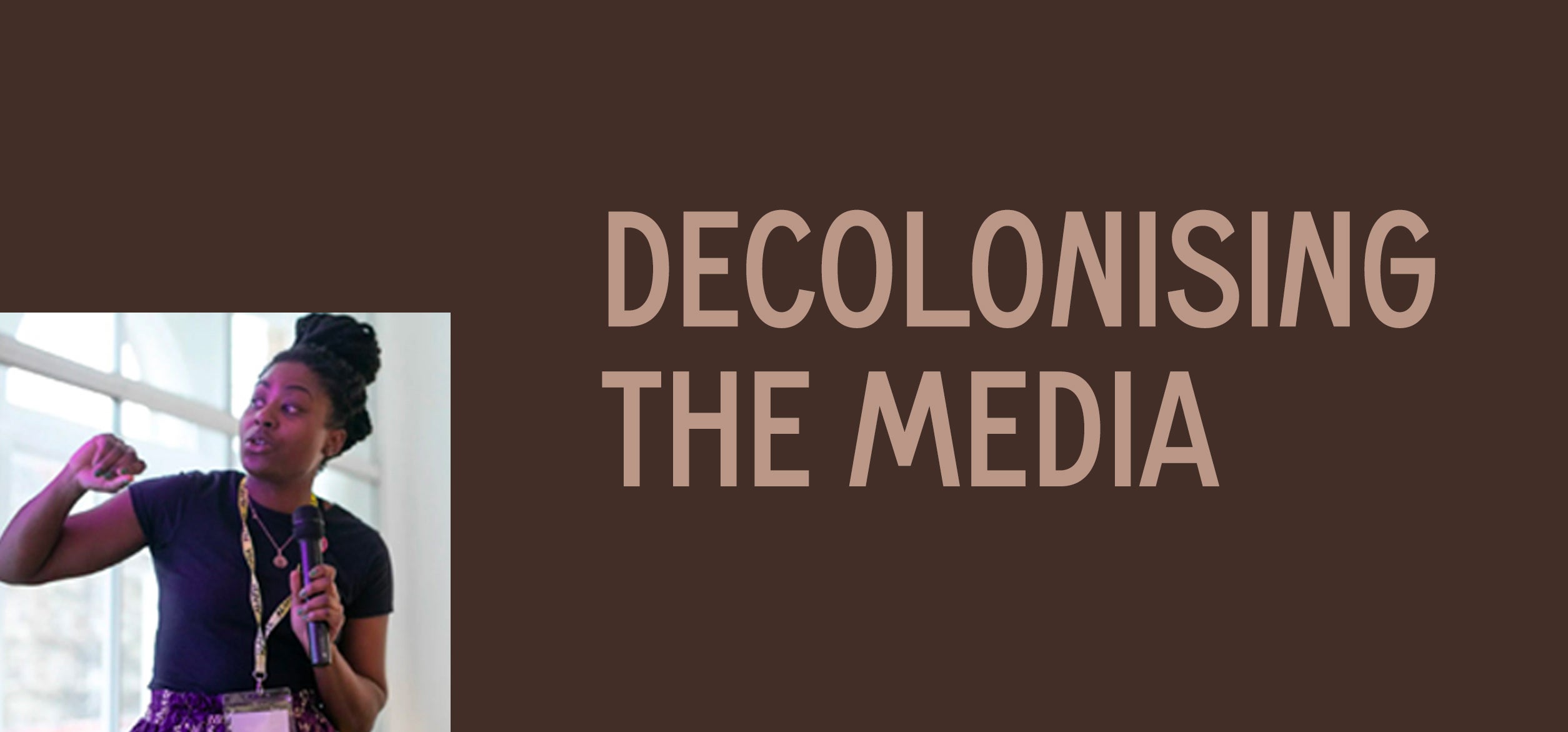28th October 2020
Our fourth Black History Month event took a more introspective turn, as Dr Annabel Sowemimo gave us an insightful and thought-provoking examination of our history and why we have got to where we are. The discussion centred around the concept of “decolonising”: it is only when we face into our colonial past that we can truly address the problems we face today.

Decolonisation is an acknowledgement of the harmful role that colonisation has played in distorting knowledge and restructuring our society. Through this, we ask how we may dismantle ‘knowledge’ derived through colonialism and instead focus on the experiences of indigenous populations.
Decolonisation strikes to the heart of the problem, where “diversifying” is akin to sticking a band-aid on a gaping wound.
Dr Sowemimo deftly took us through history: from startling images of the Human Zoo to the Delta of Venus, Saartjie Baartman and the beginnings of the hypersexualised tropes of black women. The roots of anti-blackness and tropes such as low IQ, slovenliness and hypersexualisation can be traced back to colonial writings and musings. These tropes fit with the agendas at the time and justified the oppression.
Inexcusably, these tropes still exist today. Dr Sowemimo shared examples of fashion and advertising where black models would always show up in jungle print or in African settings, subscribing to these outdated and offensive tropes.
More recently, the “Black Girl Magic” seeks to subvert these narratives. But Dr Sowemimo questioned whether this is in fact subliminally reinforcing biases? Do black girls need to be “magic” to navigate the challenges that society throws at them? They cannot be soft or meek, shouldn’t just being average also be OK?
Dr Sowemimo moved onto the issue of colourism and pigmentocracy and how the biracial aesthetic can be favoured in Hollywood as it's perceived as more “palatable” to broader audiences. Whilst, on the other hand, we are seeing cosmetic adoptions of black features like big lips, in celebrities like the Kardashians. Again, an example of hypersexiualisation. Colourism is evident in the varying degrees of privilege or bias faced by members within the black community. Even within a single-family unit, siblings could have different experiences based on how light or dark their skin is.
The cultural cycle of acceptability: an image is created, replicated and reinforced, needs to be broken. As long as tropes are perpetuated in media, it will exist. Decolonisation of the media and advertising play a pivotal role in this.
From the language in newspaper headlines, to how people of colour are portrayed in advertising, the power is in our hands, as media and advertising professionals, to break this cycle.
She pointed out that we live in a white normative society where white privilege exists. It means that white people are inherently advantaged by how society is set up, despite their own efforts. They automatically have more power than someone whose skin is not white.
From fairer skin tones being presented as “nude” and to the very real struggles of make-up and foundation catering only to a white audience. Dr Sowemimo struck a note: why has this all been OK till now? Her own work with the charity, Decolonosing Contraception, seeks to tackle this issue within contraception and be more inclusive of the broader experience of sexual health among black communities.
We closed the event with industry introspection and personal introspection. From the responsibility of big brands, not just in advertising but in marketing products that perpetuate colonial tropes and biases (e.g. skin bleaching creams). To Anisha Doshi, Communications Planning Manager’s observation, that “colonialism” is often perceived as a “dirty” word, a taboo topic we don’t face into and one that often pits minorities against each other.
Yet, it is where it all began.
Decolonisation is an incredibly powerful movement and requires true reckoning: to rebuild and re-imagine a fairer, more inclusive future, we must confront our colonial past.
